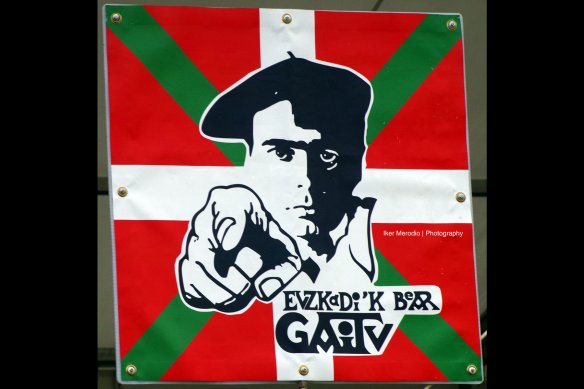Five years ago, the Basque militant group ETA (Basque Homeland and Freedom) announced a unilateral and permanent cessation of operations. Since then, the disappearance of political violence has given rise to a new debate on Basque nationhood: more inclusive, more open, more civic, and at the same time stronger in its affirmation of the legitimacy of popular sovereignty and the democratic demand to exercise ‘the right to decide’, as against the earlier radicalism of immediate independence.
A new book edited by Pedro Ibarra Güell and Åshild Kolås, Basque Nationhood Towards a Democratic Scenario, takes stock of the contemporary re-imagining of Basque nationhood in both Spain and France. Taking a fresh look at the history of Basque nationalist movements, it explores new debates that have emerged since the demise of non-state militancy. Alongside analysis of local transformations, the book also describes the impacts of a pan-European (if not global) rethinking of self-determination, or ‘the right to decide’.

Basque Country Needs You. Credit: Iker Merodio via Flickr
The significance of democracy for national sovereignty has been highlighted by globalization as well as Spain’s political transformation since the late 1970s and the fall of Francoism. Ideological change, together with increasing mobility and a general growth in the standard of living has influenced the perception of Basque nationhood towards increasingly civic features, as against the earlier emphasis on ethnic characteristics. Today, a moderate Basque nationalism is still propagated by the conservative nationalist party, Partido Nacionalista Vasco (PNV), with its strategy of reciprocal relations with the Spanish state. As such, PNV has for long played the role of interlocutor between the state and the nationalist periphery. At present, PNV continues to highlight its differences with left-wing Basque nationalism, especially as expressed by the party Euskal Herria Bildu. The Basque nationalist discourse converges only on ‘the right to decide’, which is also supported by the Spanish leftwing party Podemos, which is gaining a significant space in Basque politics.
In core areas with strong Basque majorities, Basque nationalists emphasize the majority vote and decision-making, believing that the Basque Autonomous Community could once again negotiate an updated or reconfigured Statute of Autonomy if the citizenry supports such a project. An imagined sovereignty could hence become real if a legitimate Basque majority decided to govern itself, or at least advance towards greater national sovereignty. However, there is also a ‘Basque’ territory where those identifying as Basque are in the minority. It is still not clear what democracy means in this territory.
Broadly speaking, it is obvious that the two possible futures in the Basque country are that of exit, in other words secession, or renewed loyalty to the state. Both alternatives pose a challenge to the democratic ideal of legitimately meeting the different demands of each citizen, and of achieving a legitimate consensus with respect to whether or not the ‘nation’ or ‘people’ has the right to decide its own political status as a sovereign subject. Basque political leaders now question whether, in contemporary Europe a national project, articulated with the endorsement of a social majority and broad popular support can decide on its own future and constitute oneself into whatever is decided upon in a referendum. This is clearly the democratic dilemma in the Basque country, as it is in Catalonia, Scotland, Wales, and other sites of contemporary sovereignty contestation. Is this about nationhood, or about democracy? Is it even about statehood? Is it about the demos or the ethnos? Who are ‘the people’? What does it mean to ‘exit’ in contemporary Europe?
First of all, congratulations for this publication which I am sure will broaden our perspective to the conflict and will inspire many readers in different ways.
I wonder if the book captures the recent emergence of a new crucial actor: Podemos. In the last two national elections they have been the most voted political party in every province of the Basque Country. As their position in the nationalist cleavage is somehow ambiguous and more nuanced than the two possible futures mentioned in the post (secession or renewed loyalty to the state), it seems reasonable to think that other scenarios in between are now thinkable.